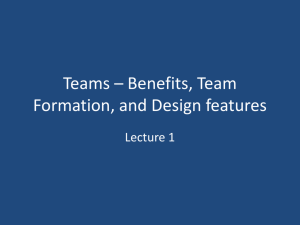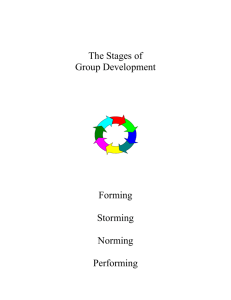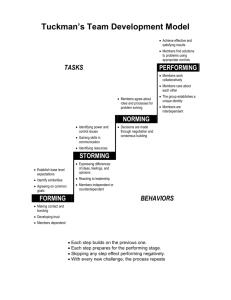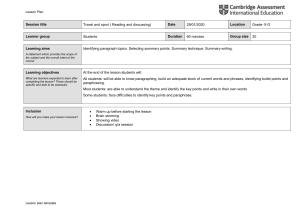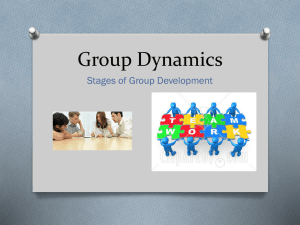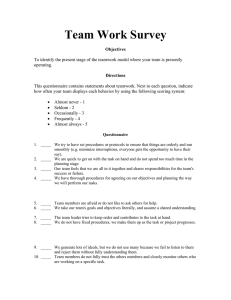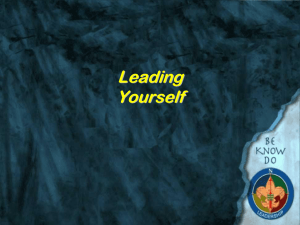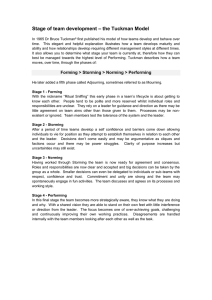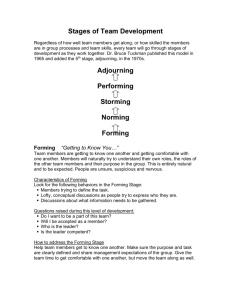Group Dynamic
advertisement
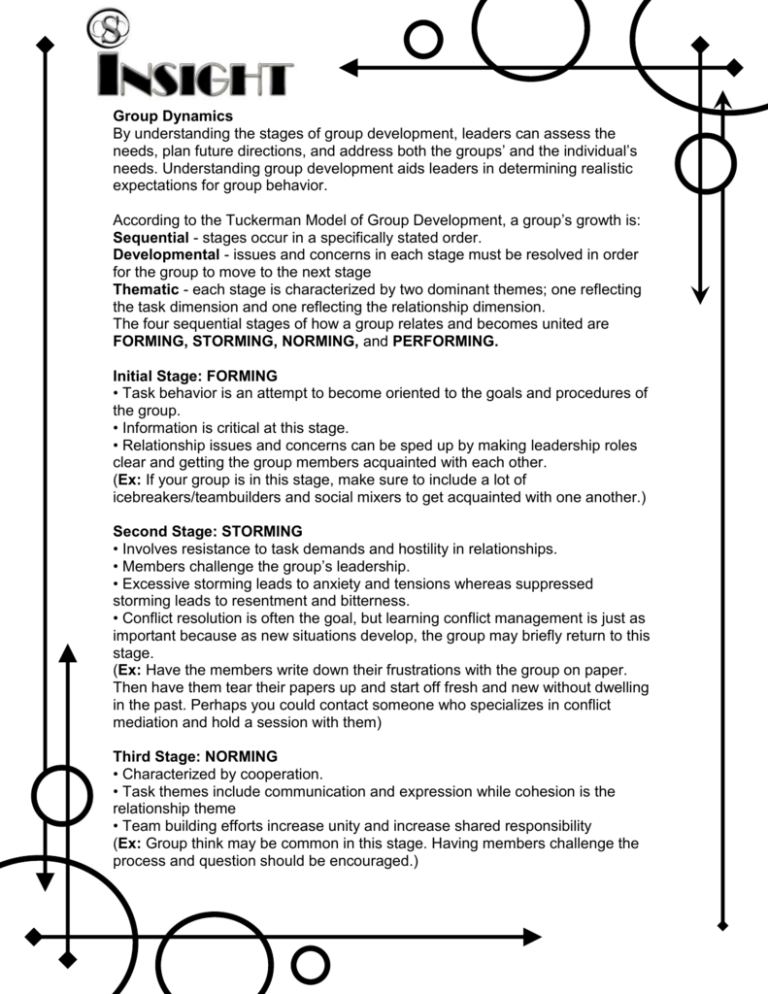
Group Dynamics By understanding the stages of group development, leaders can assess the needs, plan future directions, and address both the groups’ and the individual’s needs. Understanding group development aids leaders in determining realistic expectations for group behavior. According to the Tuckerman Model of Group Development, a group’s growth is: Sequential - stages occur in a specifically stated order. Developmental - issues and concerns in each stage must be resolved in order for the group to move to the next stage Thematic - each stage is characterized by two dominant themes; one reflecting the task dimension and one reflecting the relationship dimension. The four sequential stages of how a group relates and becomes united are FORMING, STORMING, NORMING, and PERFORMING. Initial Stage: FORMING • Task behavior is an attempt to become oriented to the goals and procedures of the group. • Information is critical at this stage. • Relationship issues and concerns can be sped up by making leadership roles clear and getting the group members acquainted with each other. (Ex: If your group is in this stage, make sure to include a lot of icebreakers/teambuilders and social mixers to get acquainted with one another.) Second Stage: STORMING • Involves resistance to task demands and hostility in relationships. • Members challenge the group’s leadership. • Excessive storming leads to anxiety and tensions whereas suppressed storming leads to resentment and bitterness. • Conflict resolution is often the goal, but learning conflict management is just as important because as new situations develop, the group may briefly return to this stage. (Ex: Have the members write down their frustrations with the group on paper. Then have them tear their papers up and start off fresh and new without dwelling in the past. Perhaps you could contact someone who specializes in conflict mediation and hold a session with them) Third Stage: NORMING • Characterized by cooperation. • Task themes include communication and expression while cohesion is the relationship theme • Team building efforts increase unity and increase shared responsibility (Ex: Group think may be common in this stage. Having members challenge the process and question should be encouraged.) Fourth Stage: PERFORMING • Encourages cooperation • Task theme is problem solving and the relationship theme is interdependence. • At this stage, the group is functioning efficiently to achieve group goals. • Group members assume roles that are necessary to achieve goals, learning independence with dependence. • It is beneficial to encourage a continued developmental theme for the group to stimulate new problems for their problem solving. (Ex: When the group is in this stage, it would be a good idea to plan a retreat. This could be a time of setting new goals and encouraging members.) While some groups will try to jump from forming to performing immediately to accomplish a task, others will consistently revert to storming. The thing to remember is that the stages are sequential, and even if the group jumps around, the leader can still encourage and help the group no matter what stage the group is in. After determining what stage the group is in, it would be good to meet with the officers and advisor(s) to make plans for group growth. Effective Group Practices Members do not ignore or ridicule seriously intended contributions. Members check to make sure they know what a speaker means before they agree or disagree. Each member speaks only for himself/herself and lets others speak for themselves. All contributions are seen as property of the group, to be used or not used as the group decides. All members participate but in different and complementary ways. Whenever the group senses it is having trouble getting work done, it tries to find out why and works to resolve the problem. People support what they help to create. The group makes decisions together and openly rather than by default. The group attempts to use consensus decision-making. However, when the majority vote wins and some members do not agree, help them to accept it and work together. The group brings conflict into the open and deals with it. Adapted from LeaderBits, The University of Kansas * The Office of Student Development * The University of Texas-Pan American.* *University Center, Room 205* Phone: 956-665-2660 * Fax: 956-665-2661*Email: osd@utpa.edu osd.utpa.edu
